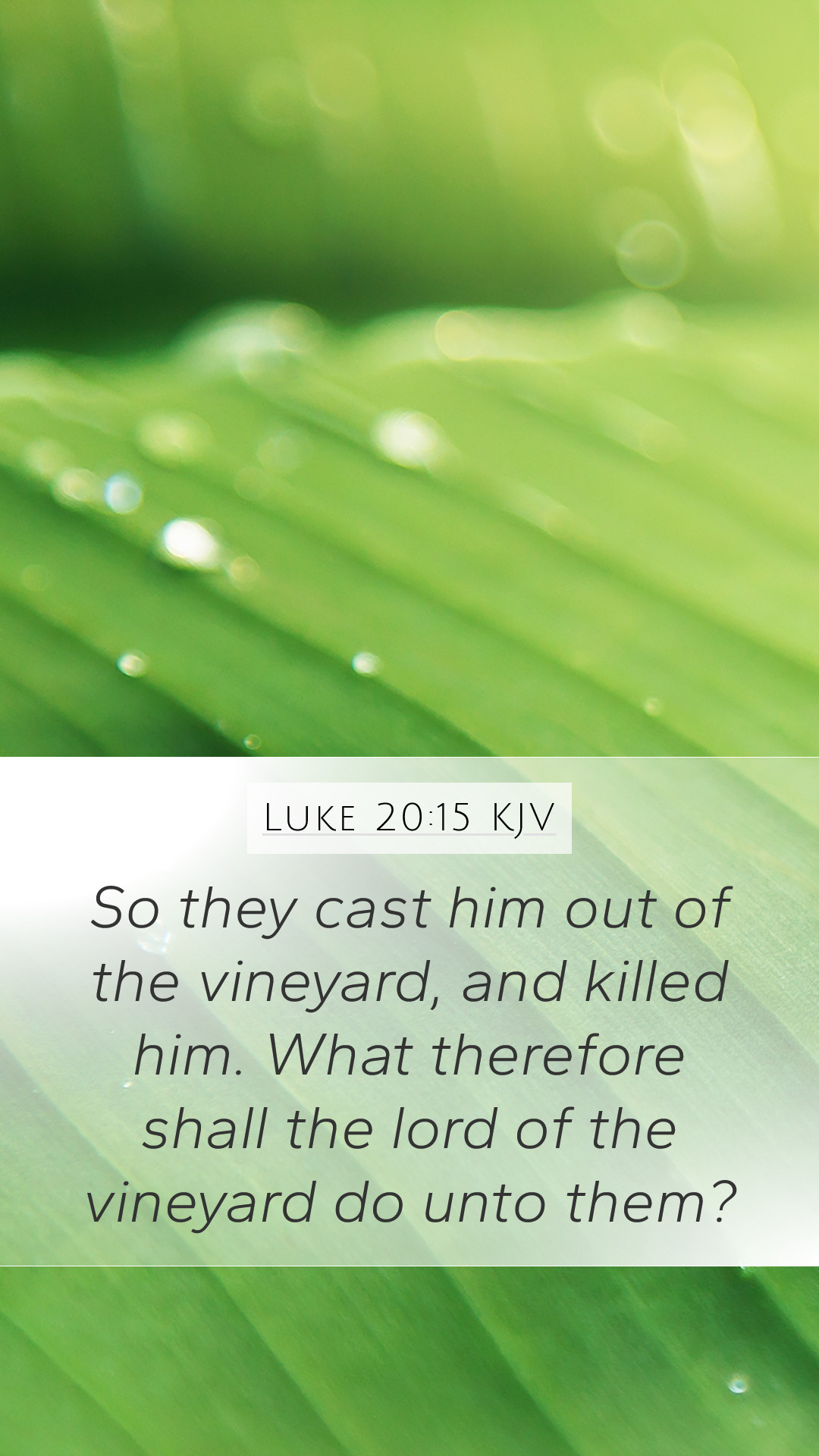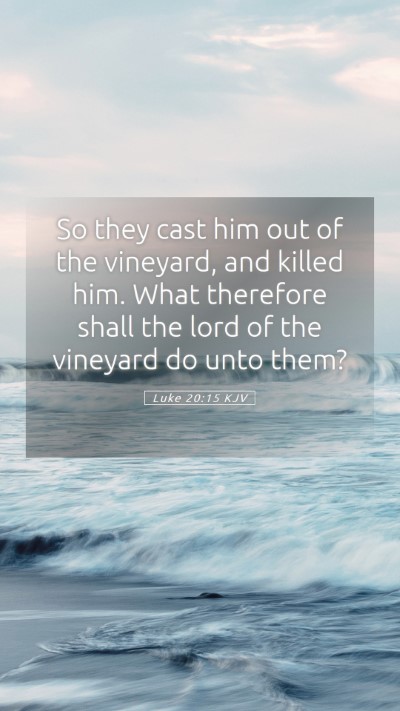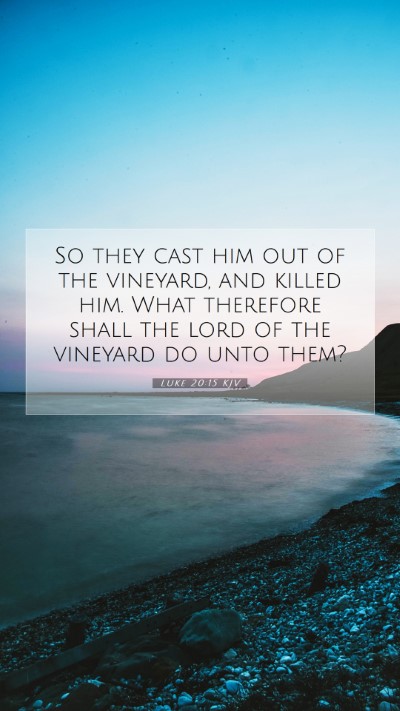Understanding Luke 20:15
Luke 20:15 states: "So they cast him out of the vineyard and killed him. Therefore, what will the owner of the vineyard do to them?" This verse is part of a parable spoken by Jesus, referred to as the Parable of the Wicked Tenants. The implications of this verse are profound, reflecting on themes of judgment, accountability, and the consequences of rejecting authority.
Bible Verse Meanings and Interpretations
This verse can be dissected to reveal various layers of bible verse meanings. The actions of the tenants symbolize Israel's rejection of the prophets and ultimately, the Messiah. It speaks to the seriousness of rejecting God's messengers and the grave consequences that follow.
Insights from Matthew Henry's Commentary
According to Matthew Henry, this parable illustrates the relationship between God and His people. The vineyard represents the people of Israel, while the tenants symbolize the religious leaders who were entrusted with the care of God’s message. Henry emphasizes the violence inflicted upon the servants (the prophets) and the final act of killing the owner's son, drawing a parallel to the crucifixion of Christ. The underlying message is one of inevitable judgment for those who fail to heed divine warnings.
Albert Barnes' Exegesis
Albert Barnes provides a deeper bible verse commentary by contextualizing the parable within its historical framework. He points out that the tenants' actions come from a place of greed and a desire for power. When they cast out the son, they were demonstrating the ultimate rebellion against rightful authority. Barnes indicates that this reflects the broader theme of rejection faced by Jesus and the consequences of disobedience towards God’s will.
Adam Clarke's Insights
Adam Clarke expands on the symbolism inherent in the vineyard. He underscores that the vineyard's owner represents God, who has provided for His people abundantly. Clarke aggressively argues that the act of killing the son represents humanity's collective disregard for God’s greatest gift—His only Son, Jesus Christ. Clarke's interpretation serves as a warning of the dire consequences awaiting unfaithful stewards of God's blessings.
Application to Daily Life
The application of this verse to daily life is immense. Believers are encouraged to assess their own responses to God’s teachings and messengers. It calls for an examination of how one treats the principles and values conveyed through Scripture. Just as the tenants faced consequences for their actions, so too will individuals face repercussions for their neglect or outright rejection of God’s guidance.
Cross References
- Matthew 21:33-46 - The parallel account of the Parable of the Wicked Tenants in Matthew.
- Isaiah 5:1-7 - The Song of the Vineyard that describes God’s care for Israel.
- Mark 12:1-12 - Mark's rendition of the same parable with similar themes.
Conclusion
In summarizing Luke 20:15, we find a poignant message that resonates through time. It serves as a cautionary tale about the consequences of negligence in faith, the rejection of God's truth, and the ultimate skepticism towards the salvation offered through Jesus Christ. By engaging with this verse, one gains invaluable bible study insights that not only enhance understanding Scripture but also deepen one’s spiritual journey.


